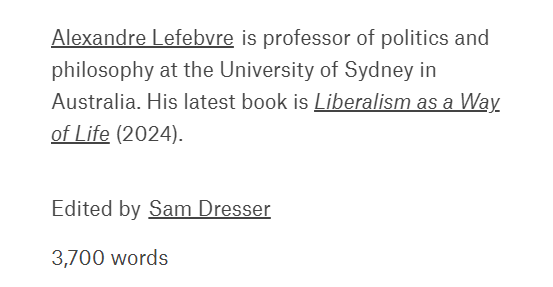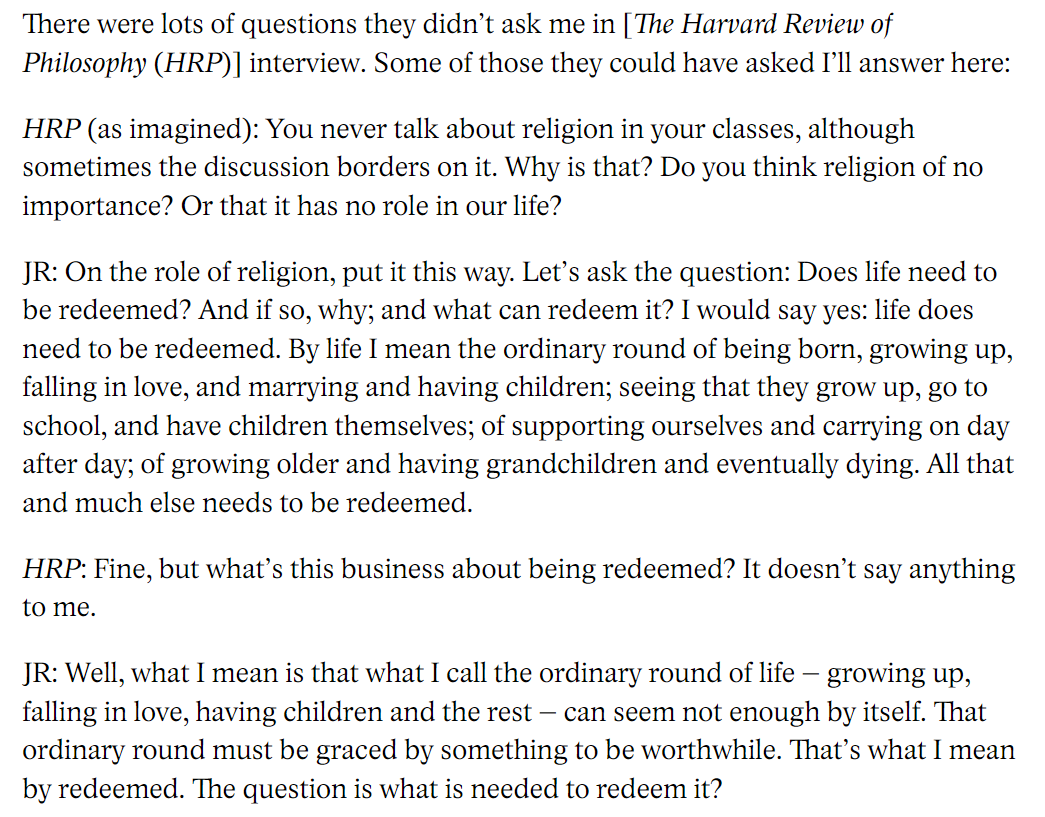Rawls the redeemer
 For John Rawls, liberalism was more than a political project: it is the best way to fashion a life that is worthy of happiness
https://aeon.co/essays/john-rawls-liberalism-and-what-it-means-to-live-a-good-life
For John Rawls, liberalism was more than a political project: it is the best way to fashion a life that is worthy of happiness
https://aeon.co/essays/john-rawls-liberalism-and-what-it-means-to-live-a-good-life
 Family Walking on Highway, Five Children (June 1938) by Dorothea Lange. Courtesy the Library of Congress
Family Walking on Highway, Five Children (June 1938) by Dorothea Lange. Courtesy the Library of Congress
John Rawls, the preeminent political philosopher of the 20th century whose masterpiece,
A Theory of Justice (1971), fundamentally reshaped the field, lived a quiet and – I mean this the best way – boring life. After an eventful and sometimes tragic youth (more on this later), he settled into an academic career and worked at Harvard University for nearly 40 years. There, he developed ideas that transformed our thinking about justice, fairness, democracy and liberalism, and also trained generations of students who are now leading members of the profession. He died aged 81 in 2002, the year I began my graduate studies, so I never had the chance to meet him. Yet every single account I’ve heard from his students and colleagues attests to his genuine kindness. Decent is the word that comes up time and again, in the understated sense of unshowy goodness.
Still waters can run deep, however, and from archival research I’ve discovered charming eccentricities. Every year, for instance, his family would put on a Christmas play that worked in his famous concepts as minor characters. My favourite bit of oddness, though, comes from an interview he gave to mark his retirement. In 1991, he sat down with undergraduate students to discuss his life, work, reception and teaching. But in a draft copy of the interview, included in his personal papers at Harvard, he added a weird and wonderful section that does not appear in the published version (and that, it seems, he wrote only for himself). After answering the questions from the students, he noted down a few ‘Questions They Didn’t Ask Me’ and played the role of interviewer and interviewee. Here’s the addendum in full:

This is bizarre for many reasons. I mean, first, who does this? Who goes home after an interview and, just for the fun of it, invents and answers hypothetical questions? But stranger still is the content. Readers of Rawls don’t expect him to speak this way. He is, after all, a
political philosopher and the main question associated with his work is the following: how is it possible for an institutional order to be just? Yet, what if, when the chips were down at the end of his career, he spoke more directly and plainly, even if only to himself, to state a more fundamental question at the root of his life and thought: how is it possible for a human life – yours, mine, or any – to be worthwhile?
Ordinary life, says Rawls, needs to be redeemed. By what? It depends on what you believe in. A theist will have one response, an atheist or agnostic another. The young Rawls was a believer, and after completing his undergraduate studies had planned to become a minister. But he lost his faith as a soldier in the Second World War. Even so, he never abandoned a conviction that ordinary life needs to be elevated (‘redeemed’ or ‘graced’) by something beyond it. I believe Rawls found that thing in
liberalism and the tradition of liberal moral and political thought he devoted his life to. He never stopped trying to work out how a life based on liberal ideals can be not only happy but worthy of happiness. This makes him the perfect guru for our times.
snip



